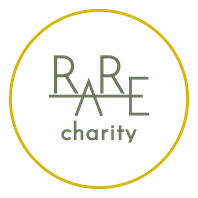 Collecting baseline data for measuring the long-term impact of educational scholarships
Collecting baseline data for measuring the long-term impact of educational scholarships
Rare Charity is a four-year old charity that offers and manages a number of secondary and tertiary scholarships for students from an impoverished agricultural tea community in Satemwa, Malawi. The charity directs financial and other educational support to students that would not be able to pursue education
without it.
The request
The charity’s mission is tied to the idea that education enables these young people to return to their community as qualified professionals, to implement long-term social change. The need to measure the impact of their involvement stems from a need to quantify the impact of their scholarship programme on social change in the Satemwa area. Rare Charity requested the development of a data collection methodology to collect baseline data to provide a benchmark for the organisation to use for monitoring the impact of their programmes in the future.
The approach
The survey area encompasses a perimeter of 1.5 hours of walking distance from Satemwa Tea Estate; Rare Charity selects students from this area. In conformity with the lowest delineations the National Statistics Office of Malawi of Traditional Areas (TAs) uses to report official statistics, households surrounding and/or within the tea estate define the target population lies and this constituted the sampling frame. A household listing by village and head of household was carried out for sampling study households.
The team developed two questionnaires (village and household questionnaires) to cover themes including: education, medical/social facilities, population demographics and economics. The questionnaires had an in-built coding system to make it possible to capture the data on an excel spreadsheet and use the pivot-table commands to easily generate the required tables, graphs and charts.
James Chiria have the pleasure to have done my part on this project as a volunteer statistician. The assignment appealed to me because of its ever-evolving nature in data that were to be collected in a mixture of ways, both using qualitative means traditional and quantitative techniques.
The result
The COVID-19 pandemic has prompted intermittent lock-downs in Malawi, therefore, it was not possible to carry out the survey. The lack of equal access to vaccines for low to middle income countries means it will not be possible to safely conduct the survey until 2022. The design of the survey is robust and the data will, however, eventually be collected and analysed. The ability to use the survey to collect baseline data will assist the charity even though it was not taken at the initiation of their educational programmes.
One particular aspect that James liked was that Rare Charity recognised the fact that there are several ways in which data are understood and that the methods of scientific investigation differ across cultures. I took this concern into account in designing the questionnaires.
The impact and benefits
Barbara Nasto, acting managing director of Rare Charity wrote:
‘The questionnaire and study plan are in hand at the charity for when the pandemic subsides. Due to the availability of expert services, Rare Charity did not need to use donor resources that can now go toward a scholarship instead of hiring a consultant to design the survey. And, the project has enabled the organisation to assess the impact of their programmes, and based on the data attenuate their programmes to more efficiently support the Satemwa community in the future.’